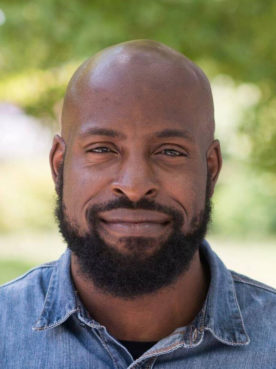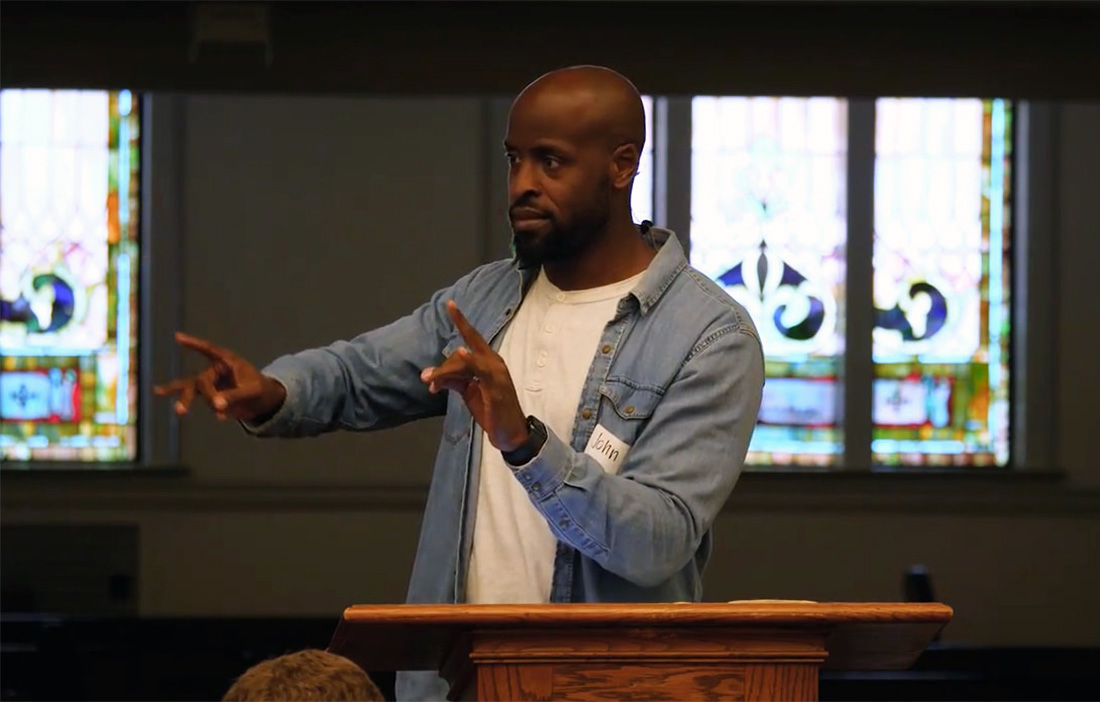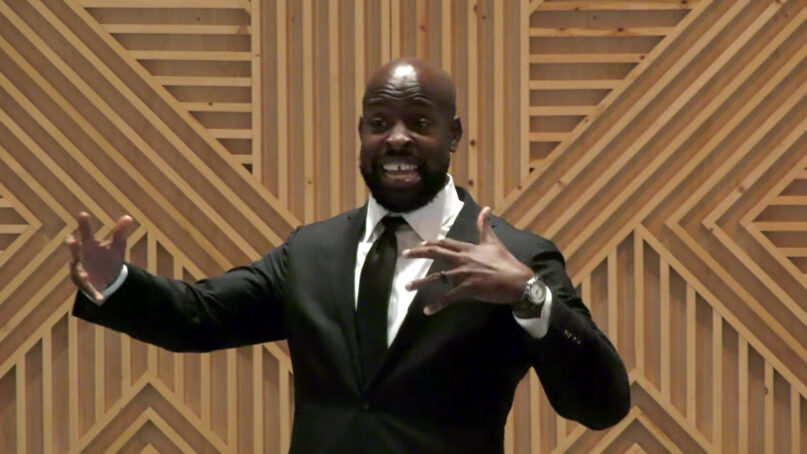(RNS) — Whenever John Onwuchekwa met someone new and that person asked what he did for a living, he never minded answering.
He was a pastor.
That title, he said, even in these skeptical times, was met with a certain amount of respect. And it’s a title he recently gave up, leaving him wondering what he’ll say now when asked what he does.
“That’s the question I fear,” he said.
Last week, Onwuchekwa, co-founder of the Crete Collective — which starts churches in communities of color — and a pastor of Cornerstone Church in Atlanta, announced that he was stepping down from his congregation at the end of the year.
His last sermon will be this Sunday (Dec. 18).
Onwuchekwa and his congregation made headlines in 2020 when he and the church broke ties with the Southern Baptist Convention over what he saw as a lack of urgency in dealing with issues of race. At the time, Onwuchekwa was a rising star in the SBC, helping other Black pastors connect with the nation’s largest Protestant denomination.
“The SBC liked me,” he wrote in 2020. “But I feel like they’ve failed people like me.”
Onwuchekwa said he and other leaders at the church have been talking for months about his possible transition. In 2021, he cut back to half time at the church, becoming a bivocational pastor, so he could have time to write and pursue projects outside the church.

Pastor John Onwuchekwa. Courtesy photo
Those projects still ended up taking a great deal of his time away from Cornerstone, which Onwuchekwa helped found in 2015. The church had grown fairly quickly to a congregation of about 400 people, which brought challenges.
Onwuchekwa said his skill set fits well with being a pastor of a startup congregation — gathering people together, setting a vision and getting the church off the ground. But he felt he didn’t have the kind of administrative skills needed to pastor a larger congregation.
“There was a mismatch between the church’s needs and my gifts,” he said.
The 24-7 realities of a pastor’s life also took their toll on the 38-year-old Onwuchekwa, who began working as a minister in his early 20s. He loved preaching and teaching, saying that “I could do that all day, every day, for free.”
But what he called the “latent responsibility” of a pastor came with a heavy load.
“One phone call can change everything,” he said.
A turning point for Onwuchekwa came this summer, after doing the funeral for a church member who took their own life. That event rocked Onwuchekwa. He ended up taking some time away and began considering leaving the church.
The 2020 pandemic and the realities of the decline of local congregations — the average church in the United States now has only about 65 people, down from 137 two decades ago — have caused a number of pastors to rethink their calling.
One challenge in leaving the pastorate, said Onwuchekwa, was finding a blueprint for handling such a transition — both for himself and for the church. The church is doing well and at least from the outside, Onwuchekwa’s ministry is thriving. He’s a popular speaker and coach and has a new book out this year called “We Go On.”
“If I had been pastoring for 40 years and left,” he said, “we would have had a blueprint for what to do. If I had a moral failing, our church would have had a blueprint on what to do. If I was burned out, our church would have a blueprint.”
Leaving when things are going well was new territory, especially since Onwuchekwa isn’t going to pastor a different church or start another new job.

Pastor John Onwuchekwa planted Cornerstone Church in west Atlanta in 2015. Courtesy photo
Instead, he’ll focus on speaking and coaching and helping lead the Crete Collective to plant new churches. He’ll also work with Portrait Coffee, a coffee roasting company he and some colleagues started in Atlanta’s West End.
Portrait was recently named the best coffee roaster in Georgia by Food and Wine magazine.
For years, Onwuchekwa said, he preached sermons telling people to build their identity on their relationship with God — not on what they do. Now he finds himself trying to live out that advice — with the help of his family and a therapist.
He realized that in deciding to leave the pastorate, he was leaving part of his identity. All he ever wanted to do was lead a church and train other pastors.
Now he hopes to still do that, as a church member. He said he still believes in the mission of Cornerstone and the broader Christian church. But his role in the church will be different.
Onwuchekwa plans to take some time away from Cornerstone so the new pastor, a friend who was already serving at the church, can establish his role as leader of the congregation. Onwuchekwa and his family plan to return to Cornerstone as church members, which will be a new experience for them.
Being a church member instead of a pastor will come with some loss. Many of the people at the church only know him as pastor and that’s defined their relationship. Once he’s no longer a pastor, he won’t have that kind of connection to people’s lives.
“We all have to embrace there is a relationship that has been lost,” he said.
There is an upside to no longer being a pastor. When he was a minister, the church got most of his time, meaning he had less time for family and friends. “By and large, the church will get less of me because my family and friends will get more of me,” he said.
His departure caught some of his friends by surprise. Some wondered why he was leaving, and others were surprised he had the option.
Onwuchekwa said some of the messages said simply: “I didn’t know you could do that.”





